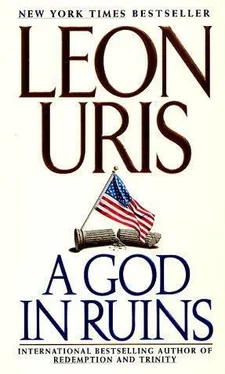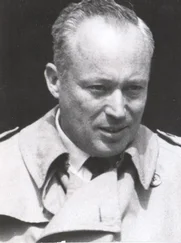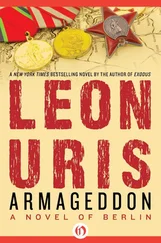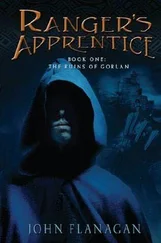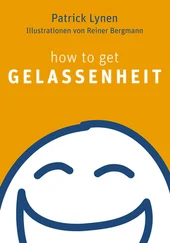“I sure do,” Quinn answered. “I’ve been briefed on this by Scripps
Institute, Woods Hole, and Long Island University School of
Oceanography. While we have gained enormous knowledge of the universe, we really don’t understand the lay of the land a few miles down. Space exploration feeds the human drive to explore, to learn, to have a romantic contact. Perhaps, in this century, we will make contact with intelligent life out there. But under any equation, we will never be able to replenish the earth’s shrinking resources. God does not run a trucking company from outer space. As for inner space, the chimneys on the ocean floors are truly God’s handiwork created over tens of millions of years. Heat from lower layers beneath the earth’s crust spouts from under the bottom of the sea, spewing minerals through the chimneys. Will we find infinite new sources of materials? If we tamper with these chimneys, which indicate fire below, then we are setting the table for underwater volcanos and the tidal waves they will create. We could be setting the table for a heating of our waters that would risk worldwide coastal flooding and a century-long El Nino.
“Does not this underwater exploration indicate a sense of desperation to replace what has been lost? Have we not done enough damage to our waters?”
Quinn went deeper into the perils of underwater mining. “Exploration is primitive. To take something from the bottom of the sea would cost a hundredfold more than surface mining.”
Thornton felt a surge of raw fear. O’Connell was explaining something in Thornton’s realm with utter clarity. Thornton could fire back with esoteric computer data, but it could well fail.
Thornton had believed himself incredible, close to godlike, the way he had fought his way back from the Four Corners. But more, the people believed their president had added a dimension to his character.
Thornton had toyed around to come up with a probe for the debate, one that would catch O’Connell cold. In actual fact, Thornton had grown a little sour on much of the underseas probing. Yet it was a good, tricky subject to show up his opponent’s ignorance.
Thornton glanced at the time-keeping apparatus. Quinn had built up a reserve of ten minutes while he, Thornton, was on borrowed time.
T3 had not come into the Great Debate without a hidden ace. He could wait till the clock wound down to five minutes. Meanwhile, Quinn had skillfully maneuvered him into an unwanted question-and-answer game.
“Mr. Carpenter,” Thornton said, turning to the moderator. “My position is that we need a study.”
“Mr. Tomtree, there is no restriction or limitation on any subject.
Mr. O’Connell can revisit anything he cares to.”
Thornton grimaced inwardly. That son of a bitch, Carter Carpenter, was at this moment the most powerful man in the world.
“What about child locks?” Quinn went on.
“That’s reasonable,” Thornton answered.
“How about a national gun registry, of which our police and other law
enforcement agencies unanimously approver1”
“We are floating into the potential of a massive bureaucracy.”
“We have registration in Colorado. The bureau has forty people in it who also double as instructors for certification of a weapon. What about the limitation on the number of personal arms a citizen can buy?”
“You can buy as many gallons of gas and chocolate bars as you want and need.”
“Well, it’s all right if each citizen purchased fifty guns, as have many citizens?”
“If we spell out numbers of guns, we may be endangering freedom of choice. Yes, there can be a ceiling, I suppose.”
“I have two pairs of skis, two tennis rackets, and between myself and my ranch manager we have three weapons. Sir, are you aware there are a hundred thousand licensed gun dealers in the U.S.?”
To let this run its course or not to let it run? Show dignity,
Thornton told himself. The damned point of all this was that as president, he was protecting both Democrats and Republicans who received huge contributions from AMERIGUN and its allies. Dammit, they’d never support any national gun law with teeth.
Quinn was going on about the Colorado gun law, saying that the provisions he was bringing up were commonsense matters.
“Tell me, Mr. Tomtree, do you believe the Second Amendment in the Bill of Rights of the Constitution should be repealed?”
“I am going on record with our moderator to say that your line of questioning is more like a prosecutor in an inquisition. But I’ll answer you, Mr. O’Connell. We do not play politics with our Constitution. It is like toying around with the Ten Commandments. A repeal will never happen because too many Democrats hold our belief that that could cause a domino effect on the Bill of Rights. What then? Attack freedom of worship? Freedom of the press? Freedom of expression?”
“Why so contentious about the Second Amendment?” Quinn asked. “Let us read the words: A well regulated Militia, militia being necessary to the security of a free State, the right of the people to keep and bear arms shall not be infringed.” Can you tell me, Mr. Tomtree, why is it that the gun advocates never quote the first part? The great banner on the wall of the AMERIGUN convention read, “The right of the people to keep and bear arms shall not be infringed.” Well, where is the rest of it, and why is it missing from all your propaganda? Could it be you are hiding the first part because it is not a gun rights amendment but an amendment about forming militias?”
Thornton checked the clocks. O’Connell had used up all but two minutes of his time and they were coming up on intermission. Now to pull one out of the hat! Now to blast O’Connell before intermission so people will be hit by his words and level the playing field.
“Mr. O’Connell, I would like to get your input on the weekly newsletter published by the highly esteemed Longacre Institute.”
“I haven’t read their most recent bulletins, but to inform the audience, the Longacre is a Washington think tank closely allied to the Christian Coalition, the Falwell, Robertson people.
Thornton held up the newsletter. “And I quote. “The truth behind the Urbakkan raid,”” he said. “According to the Long acre Institute, sir, the Urbakkan raid, which occurred in 1977, was a myth. What actually happened? A rapid-response team, of which you were a member, was testing a prototype aircraft on a NATO training exercise in Turkey. You were testing various systems, and you went off course into Iranian air space. A tanker plane had been following you for an air-to-air refueling, and the cockpit spilled fuel and caught fire, killing five Marine officers, including a major general. They were burned to death. The Corps, desiring several hundred of these planes, made a coverup story. That cover-up story was the Urbakkan raid. The raid was a sham. The legends of bravery about yourself and others were likewise a sham.”
A murmur arose from a shocked audience.
“For years,” Thornton said, “I’ve heard rumors about Urbakkan. When I went to research it, I learned that the report on the raid was sealed and under lock and key. Now we know why,” he said, holding up the Longacre newsletter.
Jesus, Quinn thought, keep your cool! The bastard thinks he can create confusion that cannot be clarified until after the election. Quinn scratched his jaw as Tomtree continued to thunder.
“I respectfully request that you lower your tone, Mr. Tomtree,” Carter Carpenter admonished.
Читать дальше
